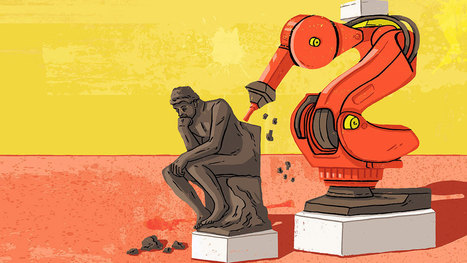The vast majority of humans throughout history worked because they had to. Many found comfort, value, and meaning in their efforts, but some defined work as a necessity to be avoided if possible. For centuries, elites in societies from Europe to Asia aspired to absolution from gainful employment. Aristotle defined a “man in freedom” as the pinnacle of human existence, an individual freed of any concern for the necessities of life and with nearly complete personal agency. (Tellingly, he did not define wealthy merchants as free to the extent that their minds were pre-occupied with acquisition.)
The promise of AI and automation raises new questions about the role of work in our lives. Most of us will remain focused for decades to come on activities of physical or financial production, but as technology provides services and goods at ever-lower cost, human beings will be compelled to discover new roles — roles that aren’t necessarily tied to how we conceive of work today.
Via The Learning Factor



 Your new post is loading...
Your new post is loading...











dhdhdhd
Most ancient Greek philosophers prioritized contemplation over action as the pinnacle of human endeavor. Arendt did battle with this notion, arguing on behalf of action. Contemporary culture appears to agree. Ultimately, though, action and contemplation function best when allied. We have the opportunity — perhaps the responsibility — to turn our curiosity and social natures to action and contemplation.